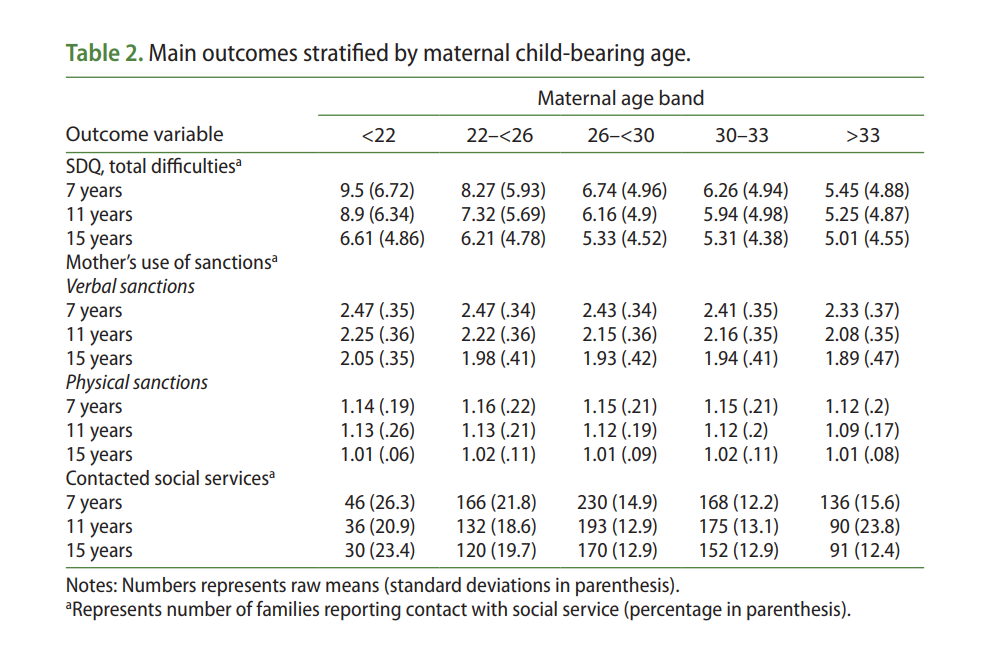
A study is making headlines that suggests that older mothers are better mothers. The study reports that children born to older mothers have fewer behavioral difficulties at ages 7 and 11 than those born to mothers who are younger.
Although this is an interesting headline, and relevant as the age of childbearing is steadily increasing in developed countries, saying that older mothers are better is just too big a generalization to make for this scientist (and mother.) Also, on another note, this study was a real win-win for me as I had my third child a full nine years after my first, so, I fall into both categories (younger and older.) It is not everyday I stand to come out on the top of a study - no matter what.
Let’s first take a look at the general (stereotypical) profile of an older mother as presented in the paper. Generally, she is more educated, more likely to have stable employment (more money), and more likely to be married. The article also mentions less tangible distinctions between older and younger mothers including such qualities that come with maturity that may aid in parenting such as more emotional well-being, greater emotional stability, and greater tolerance for complexity in emotional experience.
The study was conducted by collecting data from 4741 Danish mothers using face-to-face interviews in the respondent’s home (except the 15 year time point which was a submitted questionnaire.)
The first area of interest used the strengths and difficulties questionnaire (SDQ) which has 25 questions that focus on behavioral challenges applicable to children ages 4–16 years of age. The 25 questions cover (1) emotional symptoms, (2) conduct problems, (3) hyperactivity/inattention, (4) peer relationship problems, (5) prosocial behavior with five questions representing each category.
As can be seen in Table 2 below, the score on the SDQ (which represents the number of difficulties) gets progressively lower as the mothers get older, at both the 7 and 11 year old age, and the trend continues at 15 years old, but, to a lesser extent.

The second part of the study focused on methods of punishment. Mothers were asked how often (never, rarely, once a week) they used each of the four verbal and four physical strategies listed below over the course of teaching the child to determine right from wrong.
Verbal sanctions:
- Tell the child, that he/she did something wrong
- Scold
- Send to bedroom or ground child
- Take away privileges or rewards (left out of 15 year old survey)
Physical sanctions:
- Grabbed child or shook child
- Slapped child on face
- Slapped child on hand (for the 7 year olds only)
- Spanked child on the bottom (left out of 15 year olds survey)
Again, as seen on the Table above, the older mothers did not use these methods of punishment as frequently as the younger mothers.
The study controlled for the following factors to remove as much variability from the mothers as possible: years of schooling, level of education, employment, marital status, native language, number of siblings in household, child gender, child birth weight, and duration of breastfeeding.
Although the authors do not comment on the household income in the house, it is an important variable of a study such as this to consider, especially since older mothers may be more financially sound due to more years in the workforce. This is important as enough money to afford daycare on a whim - to run errands without kids in tow or grab a quick lunch with friends - may make a much more relaxed mother and, as a result, a lot less yelling/spanking.
The bottom line is that there are good older mothers and bad young mothers and vice versa. Maybe there is something behind older mothers being a bit calmer when it comes to reinforcing good behavior in their children, because of their maturity or where they are in their lives. But, let’s take these data for what they are - a questionnaire answered by mothers about their children. Maybe older mothers just think that their little angels are more angelic than younger mothers do - which does not make them better mothers but does make them (ok, us) more insufferable to be around.
References:
Trillingsgaard T, Sommer D. Associations between older maternal age, use of sanctions, and children’s socio-emotional development through 7, 11, and 15 years Published online: 20 Dec 2016 European Journal of Developmental Psychology
